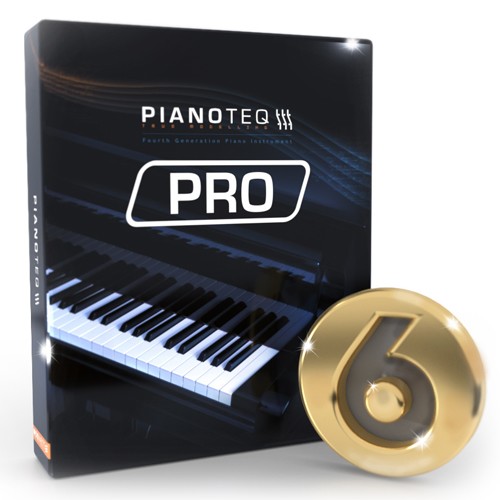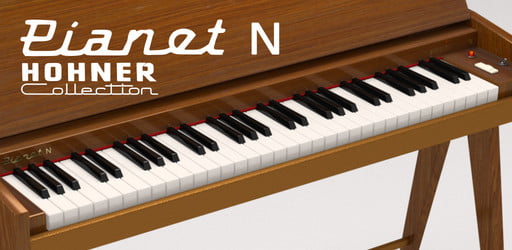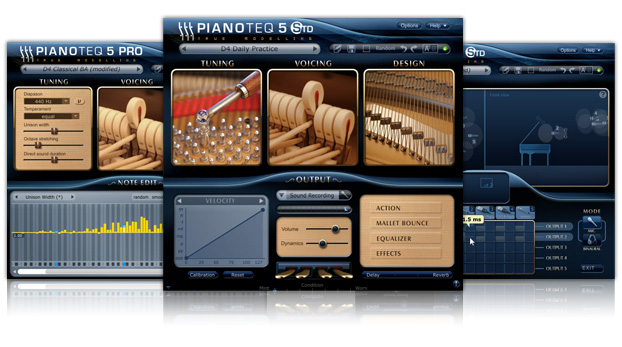

#Pianoteq vst upgrade
To me, this the option for producers looking to upgrade from not so good patches to something that sounds pretty great without breaking the bank. Because of its overall sound, I believe that this is the best piano VST for those on a budget. The Addictive Keys Studio Grand doesn’t offer a ton of different presets, but each one of them sounds better than what you would get from the default DAW patches. One thing to note is it doesn’t require a sampler such a Kontakt as it can be used as a standalone.
#Pianoteq vst mac os x
Requirements: This VST requires Mac OS X 10.9 or later or Windows 7, 8, or 10 with at least 2GB of RAM. Addictive Keys used mostly Neumann mics and these are basically the most renowned mics in the game. The mics used in recording this are all extremely expensive mics that are perfect for the job. You can adjust it from closer to more ambient, depending on what you’re liking is. There are 6 different mic placements that allow for a different taste with each placement. I’ve seen people talking about this plugin saying that they’re running it on computers from 10 years ago. You don’t need a super-fast computer to run this plugin and that’s a huge plus. I really dig the reverb with this piano as I feel like it sounds like you’re playing in a church with super high ceilings. You will have pedal noise, EQ, reverb, sustain, softness, different mic placements, and built-in convolution and algorithmic reverb. What I Likeįirst off, I think most of the presets are pretty great and to my liking. One thing that advanced pianists may not love is that you can’t do half-pedaling with this VST. The one chosen was crystal clear and it had a perfectly balanced resonance.

More than 10 different Steinway Grand pianos were tested before choosing the winner to sample. The Addictive Keys Steinway is sampled after the Steinway D Grand piano and this is a heavily sought after piano. This is the best sounding budget piano VST option that is currently available. The Addictive Keys Steinway is just that. The chances are that you are most likely looking for something that sounds great, yet isn’t going to destroy your bank.

I also have a sampletekk piano that looks to be discontinued - it wasn’t very good.I wanted to start with a solid, yet affordable option right off of the bat. $100 is almost reasonable, but like I say, I never use it. It’s a nice library, but sounds a bit harsh and brittle compared to the other piano libraries. I actually don’t own this, just think the demos all sound pretty good. I still prefer the solo tone of the Imperfect Samples piano for solo stuff, but it can be ok for some solo work. I find I use it a lot in mixes, as it seems to blend well. This is my own sampled piano, so I’ll try not to be too biased. Great tone, but sometimes when recording solo stuff for AJ there is pedal noise, and I find myself needing to tweak velocity notes to get rid of the noise. However, if I was aiming for a clean/C7 sounds it might be the way to go, but since I have to hear this kind of sound on my keyboard when I play live gigs I grow weary of it. I can see a tremendous advantage in the possibility of 127 velocity layers without eating up Ram or disk space - probably feels nice to play. Something about modeled pianos still sounds off to me…maybe a little too clean. The Sad Piano is beautiful, melancholic and minimalistic contemporary piano tune with sentimental cinematic feel. For example one solo Pianoteq tune I improvised just got approved on AJ and on it I really wanted to create really long and resonating sound that you can’t really create easily with real piano nor sampled libraries. I especially love the fact that you can really make “unrealistic” pianos that still sound real. Minor tweaks to the parameters and voila, you are actually playing a different piano. This is one of the first VSTs that instantly gave me the feeling of actually playing a real instrument, it was just pure fun to play with. Does it feel and sound intuitive or is it “off”. Goodbye 20 gigs piano libraries and welcome tidy, clean and CPU efficient system that allows you to actually remake the whole piano in a few seconds.įor me the most imporant factor in any piano VST is the feeling that it gives when you dabble around. But the latest version nails it and I think I’m not turning back. I’ve hunted for modeled piano VST for quite some time and had my eyes on Pianoteq a few years ago, but the previous versions just didn’t quite “make it” in comparison to the best sampled libraries. Not sure if people are interested but I thought I’d write a short review on a modeled piano VST called Pianoteq.


 0 kommentar(er)
0 kommentar(er)
